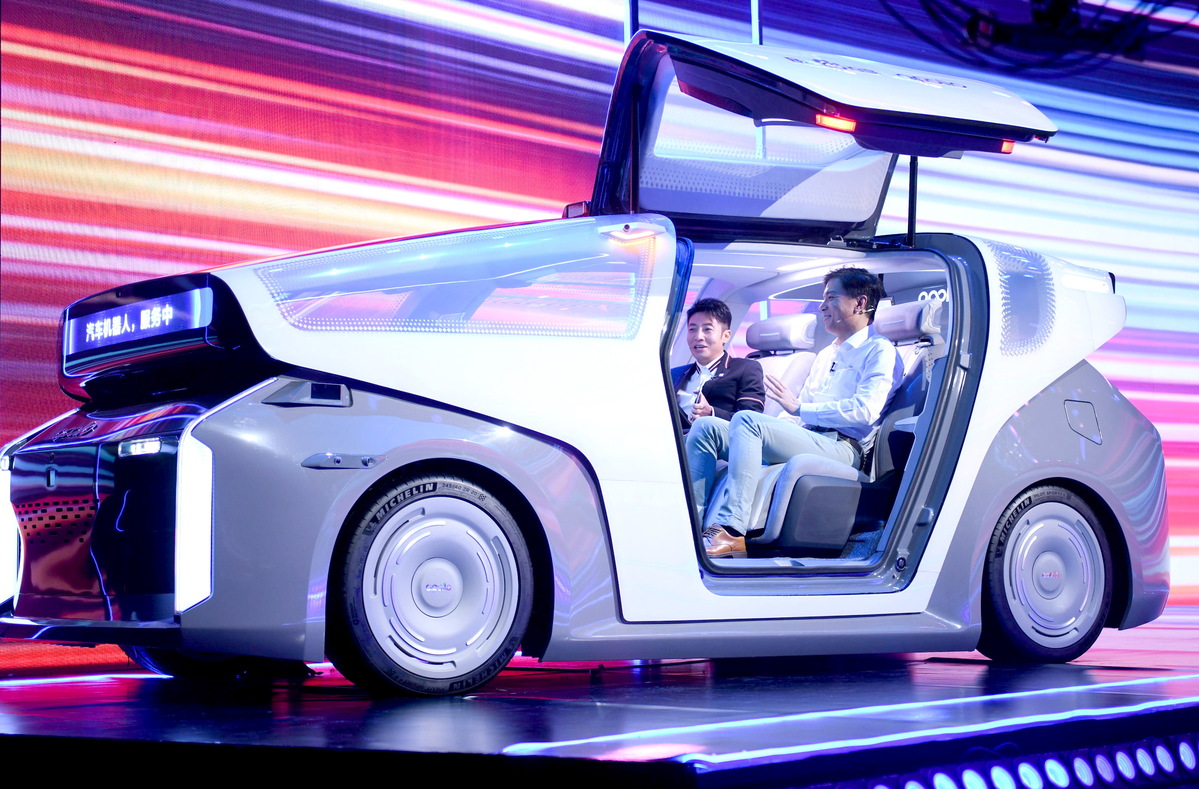Baidu robocar signals next stage of auto tech


Chinese internet search giant Baidu Inc on Wednesday unveiled its first level 5 self-driving robocar with no steering wheel, and an upgraded autonomous driving service platform named Luobo Kuaipao, in a bid to speed up the process of making the autonomous driving technology commercially viable.
Robin Li, co-founder and CEO of Baidu, outlined the company's vision at the annual Baidu World Conference in Beijing. Cars of the future, Li said, will be robocars. Such robocars will have, among other things, the following features or capabilities: L5 autonomous driving ability; voice and facial recognition capacity, which can analyze the potential needs of users and proactively offer related services; self-learning and continuous self-improvement abilities.
Featuring automated gull-wing doors and a transparent glass roof, all integrated with external sensors, the robocar subverts the traditional automobile design concept. The interior features zero-gravity seats and a large curved intelligent display and control pad, with no steering wheel and pedals, he said.
Autonomous driving is categorized from L1 to L5; the higher the level, the more intelligent the technology. L5 represents full self-driving with no human intervention or role.
The Beijing-based tech giant also launched Kunlun II, its second-generation artificial intelligence-powered chip, which is designed to help devices process huge amounts of data and boost computing power. The chip can be used in areas like autonomous driving.
"Baidu has accumulated solid strength in self-driving chips and lidar sensor technology that uses laser light to measure distances and map surroundings," said Zhang Xiang, a researcher at the Automobile Industry Innovation Research Center, which is part of the North China University of Technology in Beijing.
Zhang said fully self-driving vehicles still have a long way to go before they can reach the mass production stage or be used commercially, considering the current technology limitation.
The recent fatal self-driving car crash involving a 31-year-old entrepreneur in Fujian province has raised public concern about the safety of self-driving technology.
Lin Wenqin, founder of catering brand management firm Meiyihao, died in an accident after activating the autopilot navigation system while driving a Nio ES8 last week.
Elsewhere, auto safety regulators in the United States launched an investigation into Tesla's partially self-driving car system on Monday, after nearly a dozen reports of the company's vehicles crashing into cars at scenes involving emergency responders.
Industry insiders warned that autonomous driving startups should proceed cautiously, especially when it comes to people's safety.
"The biggest problem is that consumers are insufficiently aware of the potential risks of autonomous driving," said Cui Dongshu, secretary-general of the China Passenger Car Association.
Cui emphasized it is risky to place too much trust in autonomous driving when it is not fully mature. "Enterprises have the responsibility to inform consumers that autonomous driving has not yet replaced human driving, and the driver must be able to take over control of the vehicle at any time."




































